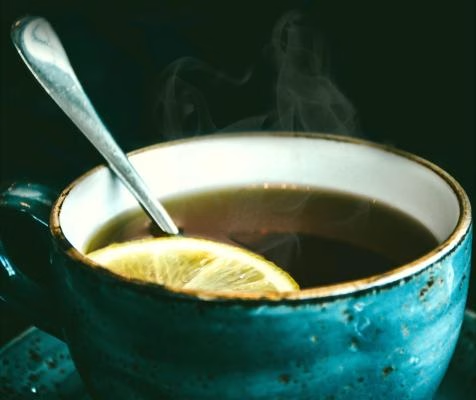Most everyday teas and coffee contain caffeine. Caffeine stimulates the central nervous system and increases heart rate, potentially disrupting nighttime activity and sleep. Consequently, many people avoid coffee and tea in the afternoon or evening for fear of falling asleep or staying asleep.
But sometimes, you can’t help but crave a flavorful drink. What can you do? Try these five easy-to-make “caffeine-free” teas for a healthy, caffeine-free experience.
Black Bean Tea
The subtle aroma of brewed grains is perfect for those who crave a flavorful, caffeine-free beverage. In Traditional Chinese Medicine, black beans are associated with the kidney meridian and can help maintain kidney health, promote blood circulation and detoxification, and promote diuresis. Black bean tea can help eliminate swelling and dampness.
To make black bean tea, use dried, roasted black beans. After purchasing the beans, heat and dry-fry them in a dry wok to evaporate the moisture and release the aroma. Roast until the beans are slightly cracked. Remove from heat and let cool slightly before brewing. Place an appropriate amount of black beans in a cup and infuse with water at around 60-80°C for 5-10 minutes.
Don’t let soaked black beans go into the trash, as they contain protein, soy isoflavones, and are rich in potassium, phosphorus, magnesium, and dietary fiber. They are delicious when added to pork rib soup, seasonal vegetables, or even salads.
Mint Tea
Recommended Flavor Variations: Honey Mint, Lemon Mint Tea
Mint, a herbaceous plant of the Lamiaceae family, has a refreshing fragrance. In Traditional Chinese Medicine, it benefits the liver and lungs, and is believed to be invigorating and calming. Brewed into mint tea, it has a slightly cooling flavor and is ideal for hot and humid weather or after meals, helping to relieve bloating and improve gastrointestinal function.
Use fresh mint leaves. After lightly washing them, tear them into small pieces by hand to help the aroma release during brewing. Brew with hot water and drink. Because mint has a mild stimulating effect, those with sleep problems should avoid drinking it near bedtime.
Mint tea can also be made with honey to create honey mint tea. Lemon slices create a refreshing and pleasant lemon and mint aroma. Chrysanthemum flowers add a touch of Chinese elegance.
Chamomile Tea
Recommended Variation: Apple Chamomile Tea
Chamomile has a light, apple-like aroma and is known as the “apple of the earth.” The most common varieties are German chamomile and Roman chamomile. Chamomile, when brewed as a tea, has calming, soothing, and sleep-inducing properties, making it suitable for drinking 1-2 hours before bed.
Use dried chamomile and focus on the second steeping. First, steep briefly with hot water to remove any pesticides or impurities that may remain on the flowers before brewing a second time. Chamomile tea can be brewed with herbs like mint for a more Western-style tea flavor. Adding small pieces of apple to the mix adds both aroma and flavor, making apple chamomile tea a pleasant choice.
Corn Silk Tea
Recommended Variation: Cassia Seed Corn Silk Tea
If you buy corn with the roots, don’t throw them away. Corn silk tea is an excellent nourishing tea. Corn silk is a traditional Chinese medicinal herb with a sweet nature. It promotes diuresis, reduces swelling, and helps maintain blood sugar levels. After removing the silk, clean the roots and boil the silk in boiling water. Drink only the silk water.
In Korea, corn silk tea has long been a popular daily tea. Tea bags contain dried corn silk, and some also include dried corn kernels. Corn silk tea has a fragrance similar to corn broth, making it more palatable for soup lovers. Adding a small amount of cassia seeds to the boiling water can help clear heat, nourish the liver, and promote diuresis, adding a different flavor.
Lemon Balm Tea
Recommended Flavor Variation: Chrysanthemum Lemon Balm Tea
Lemon balm is a herb native to southern Europe. It has a light lemony scent and is known for its relaxing and soothing properties. We recommend using fresh lemon balm leaves, shredded by hand or with kitchen shears, and then brewing with hot water.
The tea has a light lemony flavor. A drop of lemon juice can enhance the lemony aroma. Pairing it with a few chrysanthemum petals is also a great accompaniment. Drink it at night to help you relax and rest without disturbing your sleep.
Five Caffeine-Free Teas: Worried about your daily caffeine intake and trouble falling asleep? Try brewing a decaffeinated tea with these ingredients! Adding fruit or flavorings, or turning it into an iced drink, can elevate the flavor of a seemingly simple tea.


Leave a Reply